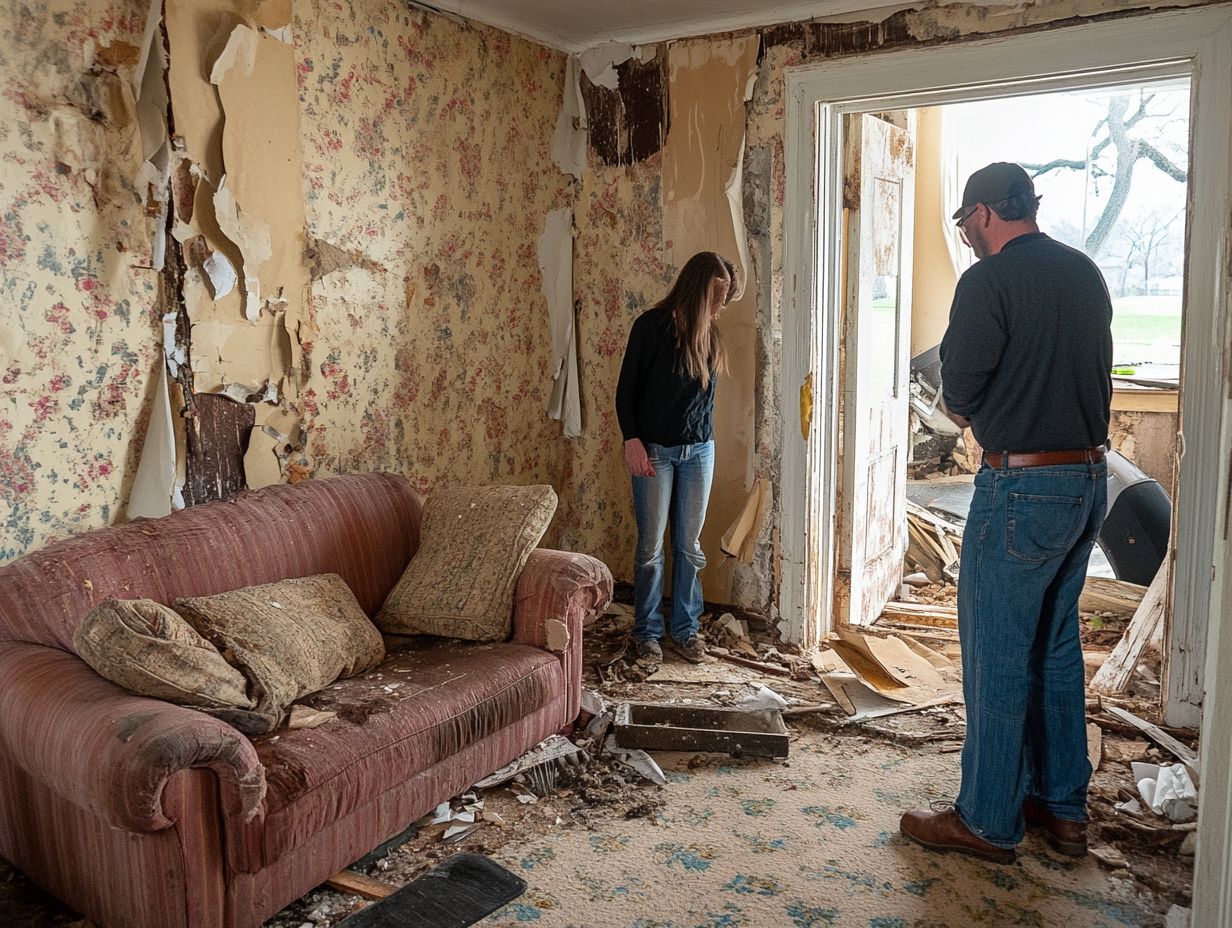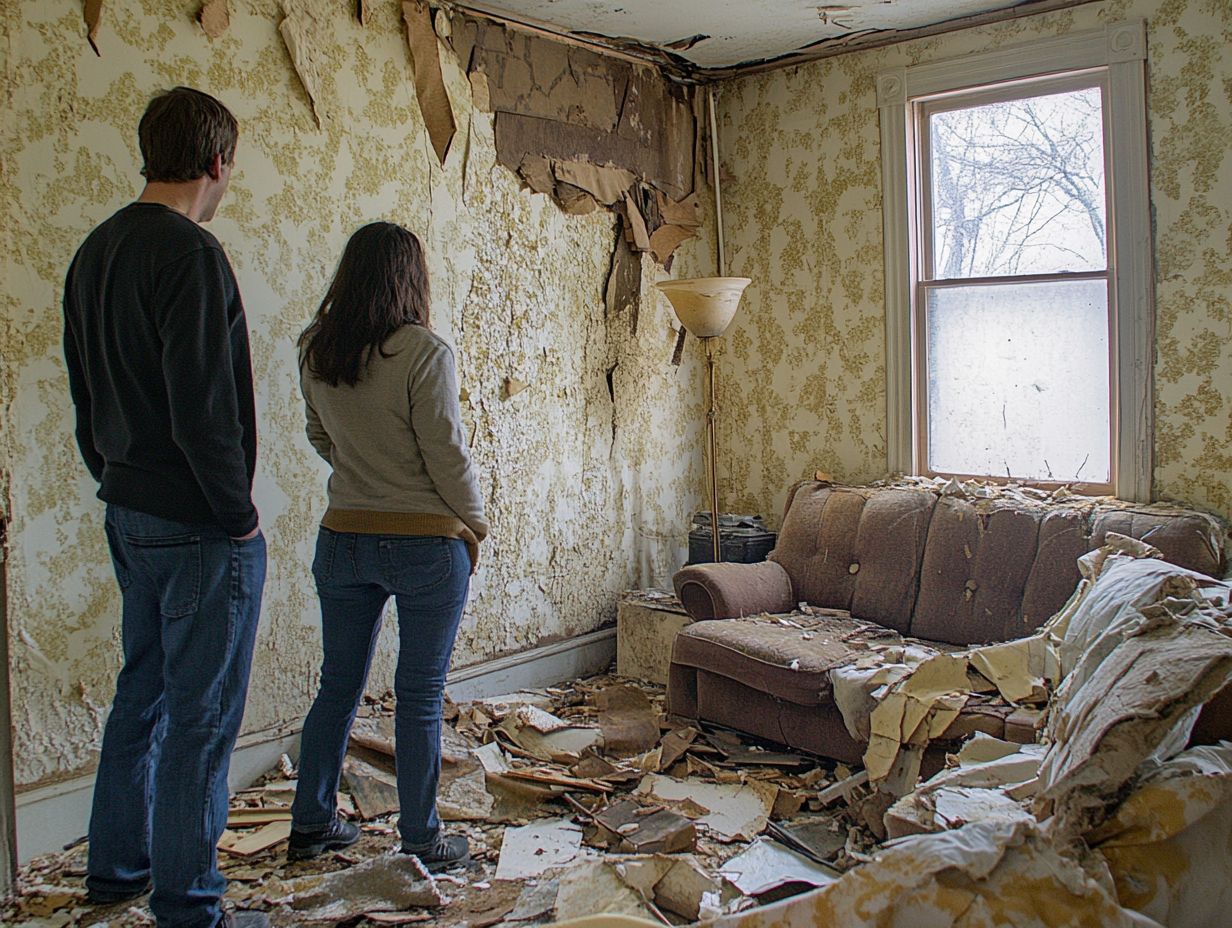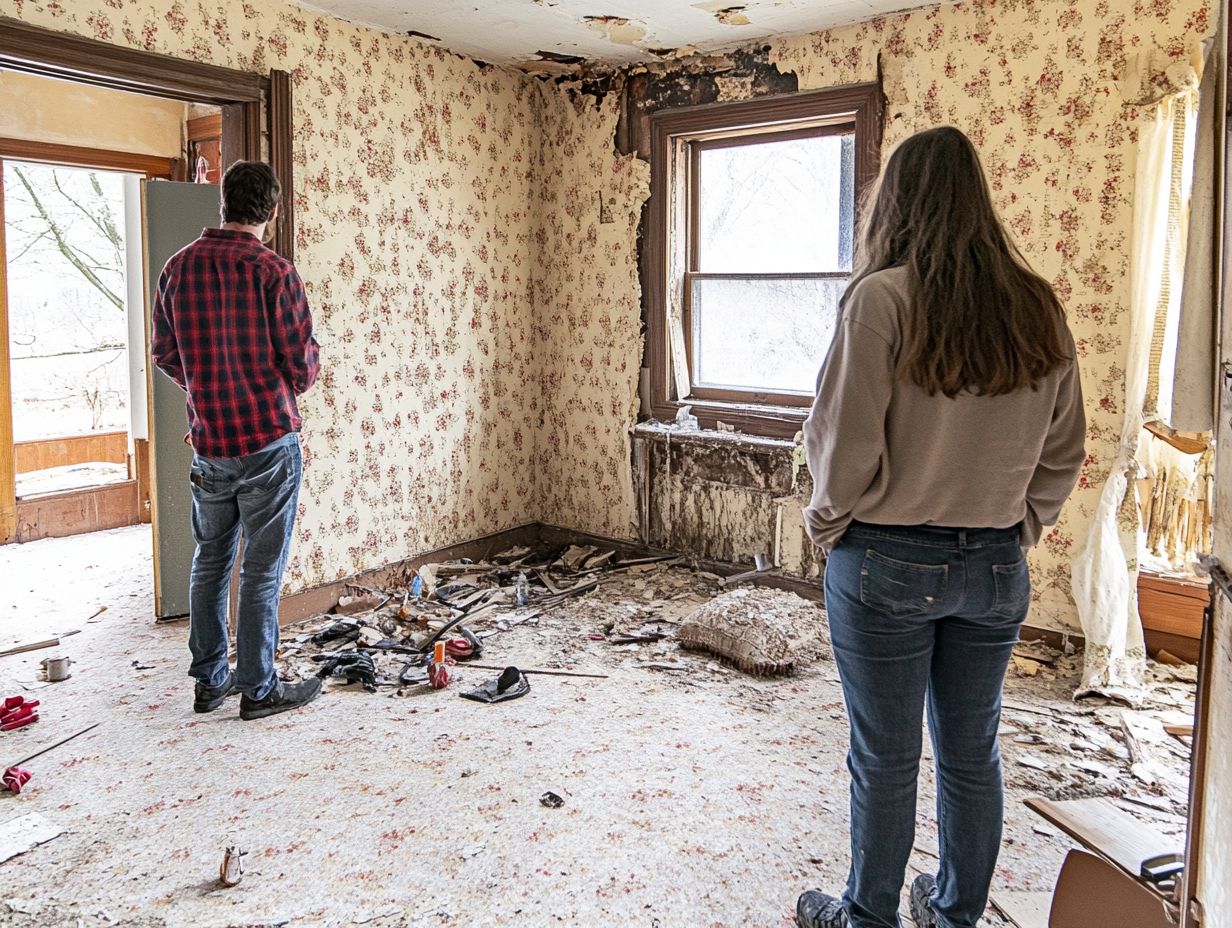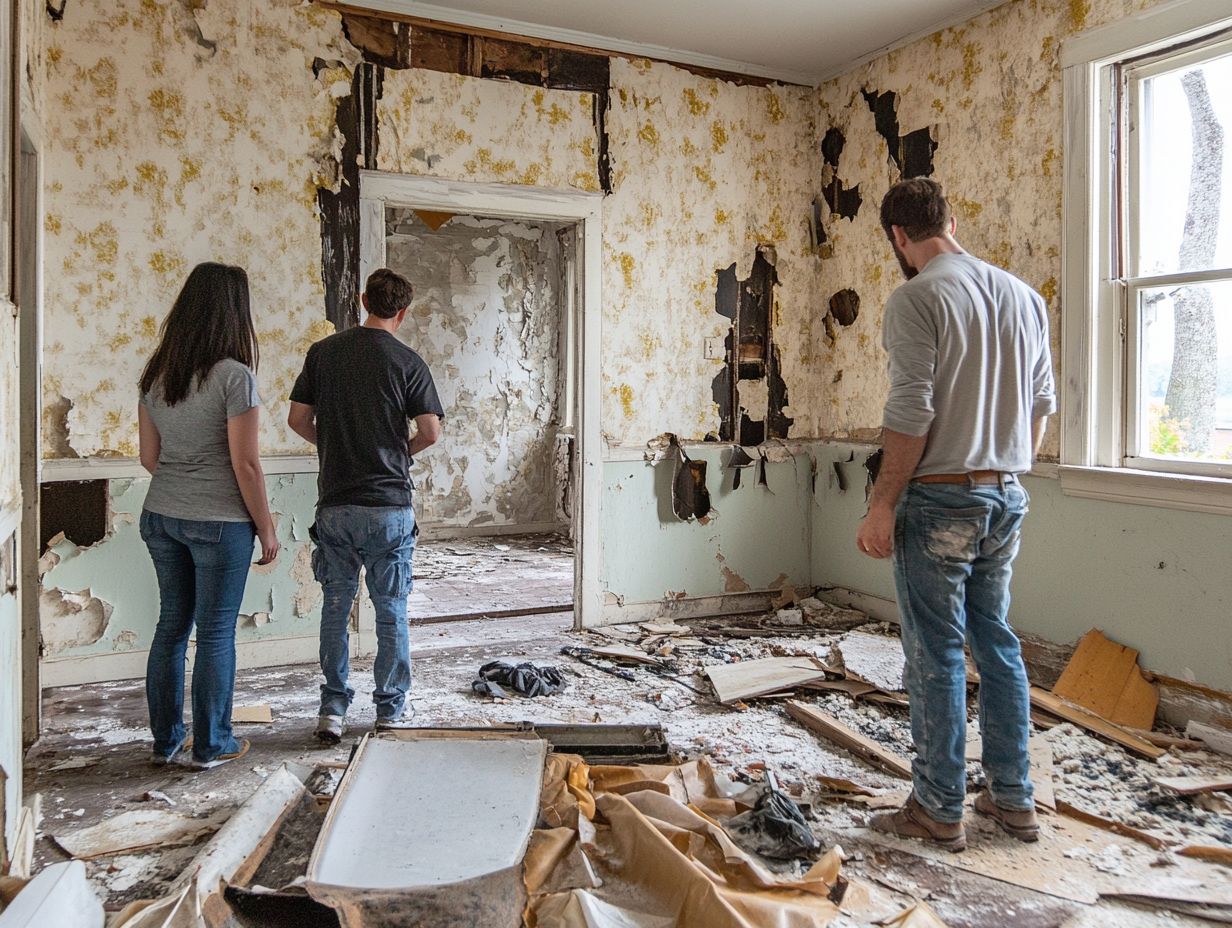What Are the Risks of Buying a Fixer-Upper?
If you re considering the purchase of a fixer-upper, you re certainly in good company. Many buyers are captivated by the prospect of breathing new life into homes that require a bit of TLC, enticed by the vision of transforming a neglected property into their dream sanctuary.
However, while the promise of a great deal may be tempting, it s crucial to carefully evaluate the pros and cons. This article will illuminate what owning a fixer-upper truly entails, covering everything from money aspects to potential pitfalls and strategies for success.
Whether you re a seasoned investor or a first-time buyer, grasping these elements will empower you to make a well-informed decision about your future home.
Contents
- Key Takeaways:
- Understanding Fixer-Upper Properties
- Pros and Cons of Buying a Fixer-Upper
- Financial Considerations
- Potential Risks of Buying a Fixer-Upper
- How to Mitigate Risks
- Final Thoughts
- Frequently Asked Questions
- What Are the Risks of Buying a Fixer-Upper?
- What are some unforeseen expenses that may come with buying a fixer-upper?
- What are some potential hidden structural issues to look out for when considering a fixer-upper?
- How can unknown repair costs impact the budget for a fixer-upper?
- What are some ways to avoid going over budget when renovating a fixer-upper?
- Can obtaining financing for a fixer-upper be difficult?
Key Takeaways:

Fixer-uppers can offer potential cost savings and the opportunity to customize a home, but they also come with risks that should be carefully considered before making a purchase. Structural and safety concerns, hidden expenses, and potential delays are some of the risks that come with buying a fixer-upper. To mitigate risks and make a smart purchase, it’s important to carefully check the property, have a realistic renovation budget, and work with experienced professionals.
Understanding Fixer-Upper Properties
Understanding fixer-upper properties is crucial for homebuyers. This is particularly important for first-time homeowners and real estate investors seeking lucrative opportunities in a competitive housing market.
A fixer-upper typically demands considerable renovation investment, ranging from structural improvements to aesthetic upgrades. This allows you to tailor the space to your unique tastes.
Carefully checking home inspection reports is vital, as these documents can uncover hidden issues that may affect your home’s value after subtracting what you owe on it, especially in sought-after areas where many buyers compete for a home.
What is a Fixer-Upper?
A fixer-upper is essentially a property that s in need of some TLC, often involving everything from minor cosmetic updates to significant structural renovations. These homes usually require attention to various elements, such as outdated plumbing, electrical systems, or even foundational concerns.
Imagine this: a charming bungalow with original features that has creaky floors and peeling paint this could be your canvas if you’re ready to roll up your sleeves. The potential for DIY renovations is vast; even small changes like a fresh coat of paint or some thoughtful landscaping can dramatically boost the property’s curb appeal and, ultimately, its value.
If you’re feeling adventurous, consider diving into more extensive projects like a kitchen remodel or adding an extra bathroom. These endeavors can yield impressive returns, transforming your investment in a fixer-upper into not just an exciting journey but a financially rewarding one as well.
Pros and Cons of Buying a Fixer-Upper
Purchasing a fixer-upper presents a unique blend of advantages and drawbacks, each capable of profoundly influencing your financial investment and long-term satisfaction with the property.
Advantages and Disadvantages
The advantages of purchasing a fixer-upper often include more manageable purchase prices and the exciting opportunity to build equity through thoughtful home improvements. However, you should also consider the potential drawbacks, such as escalating renovation costs and the likelihood of encountering unexpected issues.
Many find the chance to customize their home irresistible. It provides you the chance to mold your living space to reflect your unique taste and lifestyle. This ability to craft your dream home often outweighs the inherent risks involved.
That said, the financial implications of these renovation projects can become a source of significant stress if not handled carefully. You ll need to navigate the common pitfalls that come with renovation errors, which can derail your timelines and inflate your budgets unexpectedly.
To truly profit from your investment, plan carefully and stay prepared for surprises. Be prepared for unforeseen challenges that may arise these can demand not only your attention but also your resources, impacting your journey toward successful homeownership.
Financial Considerations

When you contemplate purchasing a fixer-upper, it s essential to meticulously assess the financial implications. This includes not only the renovation costs but also crafting a thoughtful renovation budget and exploring the diverse mortgage options available to you as a homebuyer.
Costs of Renovations and Potential Savings
The costs of renovating a fixer-upper can vary widely based on the extent of the work needed. With a thoughtfully crafted renovation budget, you can uncover potential savings through DIY projects and strategic updates.
Understand different renovation costs. Kitchen repairs may require a larger budget, especially for high-end appliances. In contrast, bathroom updates can be more affordable with smart fixture and tile choices.
In living areas, simple cosmetic changes like a fresh coat of paint or updated flooring can deliver significant aesthetic improvements without breaking the bank. By tackling smaller projects yourself, you ll likely discover that your meticulous planning and hands-on efforts can significantly cut labor costs.
This proactive approach elevates your living space and maximizes your return on investment.
Potential Risks of Buying a Fixer-Upper
While purchasing a fixer-upper may present an alluring investment opportunity, it’s essential to recognize the accompanying risks.
You may encounter unexpected issues during renovations, along with hidden expenses and delays that could complicate your plans.
Structural and Safety Concerns
When considering a fixer-upper, structural and safety concerns should be at the forefront of your mind. Issues uncovered during a home inspection can lead to significant maintenance work that impacts both the livability and value of the property.
Neglecting these crucial elements can leave you with unexpected financial burdens. Be on the lookout for challenges such as outdated electrical systems, weak foundations, or plumbing issues that could snowball into costly repairs. These factors shape your renovation choices and influence the overall stability of your investment.
A thorough inspection isn t merely a box to check off; it s an essential step that reveals hidden problems affecting safety and comfort. This insight enables you to prioritize renovations effectively, ensuring immediate safety while preserving long-term value.
Hidden Expenses and Delays
Hidden expenses and delays can pose significant risks when renovating fixer-upper homes, often leading to budget overruns and a lingering sense of buyer s remorse. Common hidden costs may sneak up on you, including unexpected structural issues, outdated electrical systems, or plumbing problems that only reveal themselves during the renovation process.
To mitigate these risks, you can take several proactive steps:
- Don t delay! Conduct thorough inspections before making a purchase.
- Maintain a contingency fund of at least 10-20% of your budget for unforeseen expenses.
- Consult with experienced contractors who can offer valuable insights into potential costs.
Delays caused by permit issues or supply chain disruptions can extend your timeline, resulting in frustration and diminishing your overall satisfaction with the investment. By staying well-informed and prepared, you can navigate these challenges more effectively and ensure a smoother renovation experience.
How to Mitigate Risks

To effectively mitigate risks when considering a fixer-upper, it’s essential to adopt a strategic approach.
Begin with thorough planning, ensuring that you understand every aspect of the project. Conduct proper home inspections to uncover hidden issues, and develop a clear financial investment strategy that aligns with your renovation goals.
This thoughtful preparation will enable you to navigate the complexities of your purchase with confidence.
Tips for Making a Smart Purchase
Making a savvy purchase of a fixer-upper requires a meticulous home inspection, establishing a realistic renovation budget, and understanding how your financial investment will influence future property values.
Leverage the insights gained from the inspection to negotiate a lower purchase price, significantly boosting your renovation budget. It’s essential to explore various mortgage options, as different loans may present varying interest rates and terms tailored to your financial situation.
Consider how your renovations will align with your long-term investment strategies balancing your immediate needs with potential future appreciation. By taking these steps, you can secure a favorable deal and position yourself for future financial growth.
Final Thoughts
Determining whether a fixer-upper is the right choice for you requires thoughtful reflection on your unique circumstances and financial standing. It also involves your readiness to embrace homeownership, which may involve significant renovations.
It s essential to weigh your personal priorities and resources before diving into a project that could reshape your living space and lifestyle.
Is a Fixer-Upper Right for You?
Determining whether a fixer-upper is the right choice for you involves carefully thinking about whether you’re ready for renovations, your financial capacity, and your ability to handle any potential buyer’s regret that might surface with unforeseen challenges.
Take a moment to reflect on your personal goals: Are you dreaming of transforming a property into your ideal home, or are you simply seeking an investment opportunity? Your financial stability is paramount; ensuring you have a robust budget in place will help you avoid overspending and alleviate the stress often associated with unexpected costs.
Consider your comfort level with DIY projects compared to hiring professionals, as this will greatly influence your overall experience when tackling a fixer-upper. Gathering insights from experienced renovators can give you the knowledge you need to make a well-informed decision.
Frequently Asked Questions
What Are the Risks of Buying a Fixer-Upper?

Buying a fixer-upper can come with a variety of risks that buyers should be aware of before making a purchase. Some of these risks include:
- Unforeseen expenses
- Hidden structural issues
- Unknown repair costs
- Potential for over-budget renovations
- Extended timelines for renovations
- Difficulty obtaining financing
What are some unforeseen expenses that may come with buying a fixer-upper?
When purchasing a fixer-upper, there are often unexpected costs that buyers might not anticipate. These can include expenses such as permits, labor costs, and materials that were not initially budgeted for. Make sure you have extra money set aside for unexpected costs.
One of the biggest risks of buying a fixer-upper is the potential for concealed structural issues. These can include problems with the foundation, roof, plumbing, or electrical systems. Buyers should have a thorough home inspection and be prepared for the costs of addressing any structural problems that may arise.
How can unknown repair costs impact the budget for a fixer-upper?
When buying a fixer-upper, it is common for buyers to underestimate the costs of repairs and renovations. This can lead to going over budget and potentially facing financial strain. It’s important to plan ahead and budget for any repair costs that might pop up before purchasing a fixer-upper.
What are some ways to avoid going over budget when renovating a fixer-upper?
To avoid going over budget when renovating a fixer-upper, it’s important to carefully plan and prioritize renovations. Focus on essential repairs and updates first, and consider DIY options for less complex projects. It’s also helpful to have extra money set aside for unexpected expenses.
Can obtaining financing for a fixer-upper be difficult?
Financing for a fixer-upper can be more challenging than obtaining a mortgage for a move-in ready home. Lenders may require a larger down payment and have stricter requirements for loan approval. It’s important to research and compare different financing options for fixer-uppers before making a purchase.






